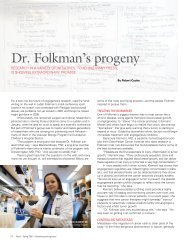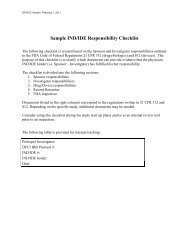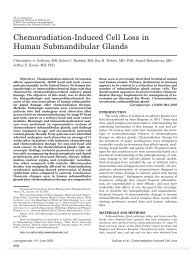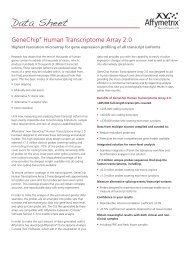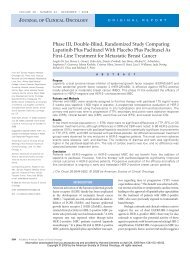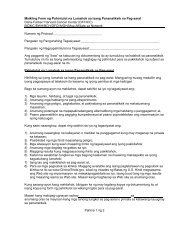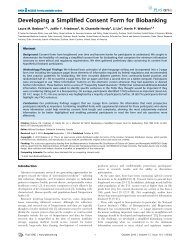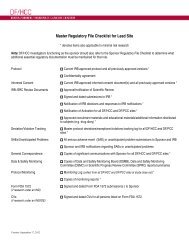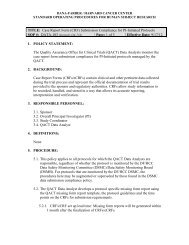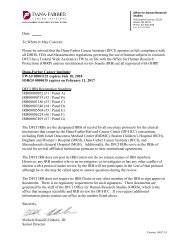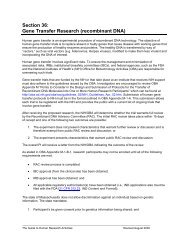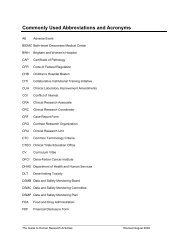Scientific Presentations Summer 2009 - Dana-Farber/Harvard ...
Scientific Presentations Summer 2009 - Dana-Farber/Harvard ...
Scientific Presentations Summer 2009 - Dana-Farber/Harvard ...
You also want an ePaper? Increase the reach of your titles
YUMPU automatically turns print PDFs into web optimized ePapers that Google loves.
Interstitial Cystitis Antiproliferative Factor Modulates MDM2,<br />
Leading to P53 Stability<br />
Nichole Jones<br />
Mentor: Jayoung Kim, PhD<br />
Children’s Hospital Boston<br />
Objectives: Interstitial cystitis (IC) Antiproliferative Factor (APF) has been reported<br />
as a sialoglycopeptide urinary biomarker of IC, a chronic syndrome of unknown<br />
etiology with variable symptoms including pelvic and or perineal pain, urinary frequency,<br />
and urgency. We previously reported that APF suppressed the proliferation<br />
rate of normal bladder epithelial cells through a mechanism that involves increased<br />
levels of p53 and activated signal pathways (Kim et al. FEBS Lett. 581:3795, 2007;<br />
Kim et al. BJU Int. 103(4):514, <strong>2009</strong>). The goal of present study is to understand<br />
the process whereby p53 expression level elicits cell growth arrest in response to APF.<br />
Methods: We performed MTT-based proliferation assay to measure APF effects on<br />
growth of T24 human bladder cells. We engineered the expression levels of p53 and<br />
the murine double minute 2 E3 ubiquitin ligase (MDM2) by transient transfection<br />
with silencing RNAs or by the use of overexpression constructs. Various biochemical<br />
experiments including Immunofluorescence Staining, western blot analysis and immunoprecipitation<br />
were used. Results: APF treatment significantly decreased protein<br />
level of MDM2 within 2 hours. Time course experiments showed that p53 level was<br />
enhanced when MDM2 expression was suppressed. Inhibition of proteasomal activity<br />
enhanced the APF-induced p53 increase. MDM2 bound to p53 and triggered<br />
ubiquitination and degradation of p53. Furthermore, APF attenuated the association<br />
of p53/MDM2 and delayed p53 degradation. Conclusions: We demonstrate that<br />
MDM2, a negative regulator of p53 expression, is functionally attenuated by APF<br />
in bladder epithelial cells. These data suggest that targeting MDM2 or p53/MDM2<br />
complex formation may be relevant in the development of novel therapeutic approaches<br />
to IC.



